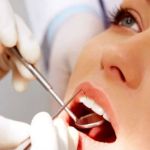What to Expect During a Dental Crown Procedure: A Complete Guide
- 1. Understanding Dental Crowns
- 2. Preparation for the Dental Crown Procedure
- 3. The Dental Crown Procedure Step-by-Step
- 4. Recovery and Care After Dental Crown Procedure
- 5. Common Questions About Dental Crowns
1. Understanding Dental Crowns
A dental crown is a custom-made cap that covers a damaged tooth. It serves both a restorative and cosmetic purpose, improving the tooth’s appearance and function. Whether it's to restore a cracked tooth, protect a weak one, or improve a decayed tooth, crowns are a common and effective solution in modern dentistry.
Crowns come in various materials, including porcelain, metal, or a combination of both. Your dentist will choose the best type based on your specific needs. It's important to know what to expect during the process, so let's explore the details of the procedure.
2. Preparation for the Dental Crown Procedure
The first step before getting a dental crown involves a thorough examination by your dentist. They may take X-rays to assess the condition of the tooth and the surrounding bone. If the tooth is severely decayed or infected, a root canal might be necessary before placing the crown.
Once the tooth is ready, the dentist will begin by reshaping it. This step is crucial because it ensures the crown fits snugly over the tooth. Depending on the amount of decay or damage, your dentist might have to remove part of the tooth structure to accommodate the crown.
3. The Dental Crown Procedure Step-by-Step
The procedure typically takes two visits. Here's a breakdown of the process:
- First Visit: The dentist will reshape your tooth, take impressions, and possibly fit you with a temporary crown to protect the tooth while the permanent crown is made.
- Second Visit: After your permanent crown is ready, your dentist will remove the temporary crown and place the permanent one. Adjustments may be made to ensure proper fit and comfort.
It’s normal to experience some sensitivity after the procedure. This usually resolves within a few days as your tooth adjusts to the new crown.
4. Recovery and Care After Dental Crown Procedure
After your crown is placed, you’ll need to follow your dentist’s aftercare instructions to ensure its longevity. Avoid chewing on hard foods immediately after the procedure, and maintain good oral hygiene by brushing and flossing regularly.
Crowns can last anywhere from 5 to 15 years, depending on the material used and how well you care for them. Regular dental check-ups are essential to ensure the crown is still in good condition.
5. Common Questions About Dental Crowns
Many patients have questions about dental crowns. Here are a few common ones:
- How long will my dental crown last? With proper care, your crown can last up to 15 years or more.
- Will a dental crown be noticeable? Modern crowns are designed to blend seamlessly with your natural teeth, making them virtually unnoticeable.
- Are dental crowns expensive? While the cost can vary based on the material and complexity, dental crowns are a worthwhile investment in the health and appearance of your smile.
If you're considering a dental crown or want to learn more about the procedure, Dentistry Toothtruth can provide you with expert advice and assistance. Click here to explore more and schedule your consultation: Dentistry Toothtruth.







 Monterey Hills Dental4.0 (94 review)
Monterey Hills Dental4.0 (94 review) Gateway Dental Group4.0 (162 review)
Gateway Dental Group4.0 (162 review) Marcellus T. Horsch, DDS4.0 (5 review)
Marcellus T. Horsch, DDS4.0 (5 review) Arden Dental Associates - Carlos Campodonico, DDS4.0 (138 review)
Arden Dental Associates - Carlos Campodonico, DDS4.0 (138 review) The Geller Dental Group p.c.4.0 (799 review)
The Geller Dental Group p.c.4.0 (799 review) Marshall H Titus, DDS0.0 (0 review)
Marshall H Titus, DDS0.0 (0 review) The Importance of Oral Health Education During Pregnancy for a Healthy Pregnancy
The Importance of Oral Health Education During Pregnancy for a Healthy Pregnancy Best Tips for Brushing Your Teeth Properly for Healthy Gums: Essential Techniques for Oral Health
Best Tips for Brushing Your Teeth Properly for Healthy Gums: Essential Techniques for Oral Health Why Skipping Dental Checkups Can Lead to Bigger Oral Health Problems
Why Skipping Dental Checkups Can Lead to Bigger Oral Health Problems Advantages of Porcelain Dental Restorations
Advantages of Porcelain Dental Restorations How Can Diabetes Cause Tooth and Gum Problems? Preventing and Managing Oral Health Issues
How Can Diabetes Cause Tooth and Gum Problems? Preventing and Managing Oral Health Issues Healthy Habits for Promoting Good Oral Health and Hygiene: Tips for a Healthy Smile
Healthy Habits for Promoting Good Oral Health and Hygiene: Tips for a Healthy Smile